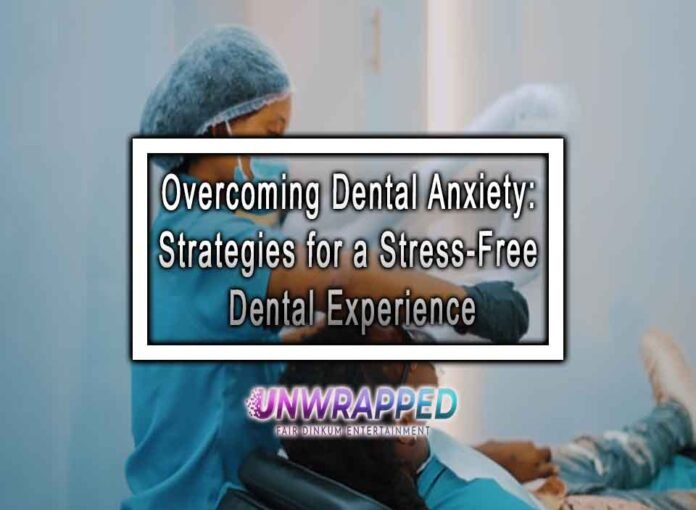Dental fear, also known as dental anxiety or dental phobia, is a common concern that affects millions of people worldwide. For some individuals, the thought of visiting the dentist evokes feelings of fear, stress, and apprehension, leading to avoidance of dental care and potential negative consequences for oral health. However, with the right strategies and support, overcoming dental fear and receiving the essential dental care needed for optimal oral health and well-being is possible.
Understanding Dental Fear
Dental fear may originate from different sources, such as previous traumatic incidents, concerns about pain or discomfort, embarrassment regarding dental health, and feelings of helplessness or vulnerability during dental procedures. These emotions often manifest physically, resulting in symptoms like increased heart rate, sweating, shaking, and breathing difficulties, which can make dental appointments daunting and distressing for those affected.
Strategies for Coping with Dental Fear
Open Communication: Openly and honestly communicate your fears and concerns with your dentist. A compassionate and understanding dental professional will attentively listen to your feelings, offer reassurance, and collaborate with you to craft a customized treatment plan tailored to accommodate your specific needs and preferences.
Sedation Dentistry: Consider sedation dentistry options if you struggle, such as nitrous oxide (laughing gas), oral sedatives, or intravenous (IV) sedation to help alleviate anxiety and discomfort during dental procedures. Talk to dentists Chadstone based about these sedation methods, which can induce feelings of relaxation and calmness, allowing you to undergo treatment comfortably and without fear.
Gradual Exposure: Gradually expose yourself to dental environments and procedures to desensitize yourself to dental fear over time. Start with small steps, such as visiting the dental office to meet the staff or scheduling non-invasive procedures like dental cleanings or exams, before progressing to more involved treatments.
Relaxation Techniques: Engage in relaxation techniques like deep breathing, visualization, or progressive muscle relaxation to soothe your nerves and alleviate anxiety before and during dental appointments. These methods can help create a sense of calm and ease, promoting a more comfortable experience at the dentist. These techniques can help promote a sense of relaxation and control, making dental visits more manageable and less stressful.
Distraction Techniques: Distract yourself during dental appointments by listening to music, watching videos, or focusing on a relaxing object or image. Bringing headphones and a favorite playlist or audiobook can help shift your focus away from dental procedures and create a more positive and enjoyable experience.
Support System: Seek support from friends, family members, or support groups who understand your dental fear and can provide encouragement and reassurance. Having a supportive network of individuals who can accompany you to dental appointments or offer emotional support can make a difference in managing dental anxiety.
Cognitive Behavioral Therapy (CBT): Explore the option of therapy or counseling with a certified mental health expert specializing in anxiety disorders, including dental phobia. Through cognitive-behavioral therapy (CBT) techniques, you can learn to challenge negative thoughts and beliefs surrounding dental visits, develop effective coping strategies, and gradually confront and conquer dental-related fears.
Conclusion
Dental fear can be a challenging obstacle to overcome, but with patience, persistence, and support, it is possible to manage and alleviate dental anxiety. By implementing strategies such as open communication with your dentist, gradual exposure to dental environments, relaxation techniques, distraction techniques, sedation dentistry, building a support system, and seeking therapy if needed, you can take control of your dental fear and receive the dental care you need. Remember that you are not alone; dental professionals are here to help you feel comfortable and supported throughout your dental journey.











